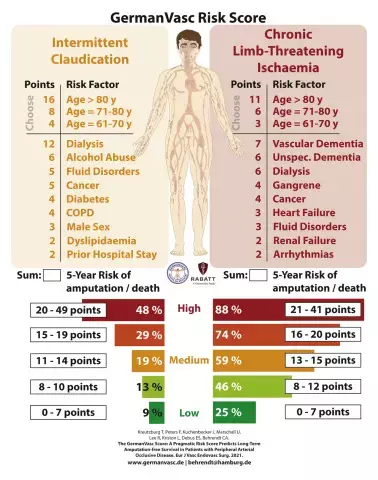- Home
- Medical news & Guidelines
- Anesthesiology
- Cardiology and CTVS
- Critical Care
- Dentistry
- Dermatology
- Diabetes and Endocrinology
- ENT
- Gastroenterology
- Medicine
- Nephrology
- Neurology
- Obstretics-Gynaecology
- Oncology
- Ophthalmology
- Orthopaedics
- Pediatrics-Neonatology
- Psychiatry
- Pulmonology
- Radiology
- Surgery
- Urology
- Laboratory Medicine
- Diet
- Nursing
- Paramedical
- Physiotherapy
- Health news
- Fact Check
- Bone Health Fact Check
- Brain Health Fact Check
- Cancer Related Fact Check
- Child Care Fact Check
- Dental and oral health fact check
- Diabetes and metabolic health fact check
- Diet and Nutrition Fact Check
- Eye and ENT Care Fact Check
- Fitness fact check
- Gut health fact check
- Heart health fact check
- Kidney health fact check
- Medical education fact check
- Men's health fact check
- Respiratory fact check
- Skin and hair care fact check
- Vaccine and Immunization fact check
- Women's health fact check
- AYUSH
- State News
- Andaman and Nicobar Islands
- Andhra Pradesh
- Arunachal Pradesh
- Assam
- Bihar
- Chandigarh
- Chattisgarh
- Dadra and Nagar Haveli
- Daman and Diu
- Delhi
- Goa
- Gujarat
- Haryana
- Himachal Pradesh
- Jammu & Kashmir
- Jharkhand
- Karnataka
- Kerala
- Ladakh
- Lakshadweep
- Madhya Pradesh
- Maharashtra
- Manipur
- Meghalaya
- Mizoram
- Nagaland
- Odisha
- Puducherry
- Punjab
- Rajasthan
- Sikkim
- Tamil Nadu
- Telangana
- Tripura
- Uttar Pradesh
- Uttrakhand
- West Bengal
- Medical Education
- Industry
GermanVasc Score may Predict prognosis of Patients with Peripheral Arterial Occlusive Disease

A recent study published in the European Journal of Vascular & Endovascular Surgery suggests The GermanVasc score predicts worse five-year amputation free survival (AFS) stratified for inpatients suffering from intermittent claudication (IC) and chronic limb threatening ischaemia (CLTI), with good predictive accuracy.
For patients with the peripheral arterial occlusive disease (PAOD), quality of life is seriously impaired by the risk of amputation and death. Knowledge about the individual probability of long term outcomes after hospitalisation for PAOD is sparse, therefore, it can be challenging to make the best choice from a wide range of possible invasive and best medical treatments. For this purpose, researchers of University Medical Centre Hamburg-Eppendorf, Germany conducted a study to develop an easy to use score to estimate the five-year probability of amputation free survival (AFS) of patients with PAOD, based on routinely collected health insurance claims data in Germany.
It was a retrospective analysis of claims data, symptomatic PAOD. A total of 87293 patients with PAOD were split into training (60%) and validation (40%) sets. Patient age and gender, Elixhauser comorbidities, and the 190 most common secondary diagnoses were the variables in the model. Researchers conducted penalized Cox regression (least absolute shrinkage and selection operator) with tenfold cross-validation for variable selection and individuals were classified into five risk groups applying the ten most important variables. The major outcome assessed was death or major amputation above ankle level, measured as the composite endpoint of five-year AFS after the index hospitalisation.
Researchers determined the most important variable predicting worse five-year AFS as patient age >80 years. They found the GermanVasc score exhibited good predictive accuracy both for IC (c statistic = 0.70) and CLTI (c statistic = 0.69) with adequate calibration due largely to the alignment of observed and expected risk. Depending on the cumulative point score, they recorded a five-year risk of amputation or death ranged from 9% (low risk) to 48% (high risk) for IC, and from 25% to 88% for CLTI.
The authors concluded, "The GermanVasc score predicts worse five-year AFS stratified for inpatients suffering from IC and CLTI, with good predictive accuracy. By separating low from high-risk patients, the GermanVasc score may support patient-centred consent".
For further information:
https://www.ejves.com/article/S1078-5884(20)31006-6/fulltext?rss=yes#articleInformation
Medical Dialogues Bureau consists of a team of passionate medical/scientific writers, led by doctors and healthcare researchers. Our team efforts to bring you updated and timely news about the important happenings of the medical and healthcare sector. Our editorial team can be reached at editorial@medicaldialogues.in.
Dr Kamal Kant Kohli-MBBS, DTCD- a chest specialist with more than 30 years of practice and a flair for writing clinical articles, Dr Kamal Kant Kohli joined Medical Dialogues as a Chief Editor of Medical News. Besides writing articles, as an editor, he proofreads and verifies all the medical content published on Medical Dialogues including those coming from journals, studies,medical conferences,guidelines etc. Email: drkohli@medicaldialogues.in. Contact no. 011-43720751


